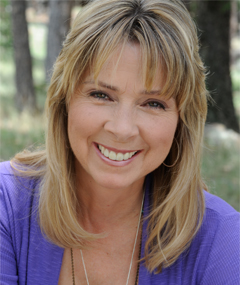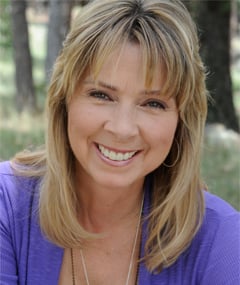I’ve been curious about when this human expression of writing first emerged. I remember studying The Epic of Gilgamesh (written c.2150-1400BCE) about the semi-mythic King of Uruk, an early tale which is often recognized as the oldest piece of epic world literature. No one knows who wrote the original work and some say it was Gilgamesh himself!
There is also one of my all-time favorites, The Descent of Inanna about the ancient Sumerian goddess, Inanna, and her descent into the underworld. Inanna takes along seven gifts, conveying that even in darkness, we possess gifts that might be drawn upon to illuminate our
way through whatever challenges us. The poem utilizes a repetitive text with commands spoken over and over, giving it the feel of a sacred chant or invocation. This life-affirming poetic text has endured over 4,000 years after it was first written. This and other short poems about Inanna are rich with imagery and symbology, possessing universal themes still relevant today.
I was surprised to discover that there was another author whose works predated The Epic of Gilgamesh and The Descent of Inanna. Enheduanna, a woman who lived in the 23rd century BCE in Mesopotamia is considered the world’s first known author. Even more intriguing is that Enheduanna was a princess and a priestess. She was prolific, writing forty-two hymns and three epic poems in hopes to inspire and unify two separate factions of her kingdom. She was considered the most powerful person in the city of Ur until she was banished to wander the vast desert. Soraya Field Fiorio, a writer who works “to recover ‘lost’ historical women whose presence has been omitted from the traditional metanarrative through either intentional destruction or neglect,” details the life of Enheduanna in her fascinating TEDed video, Who was the World’s First Author?
Ok, so the act of writing is very, very old. Writing provides an avenue to consider ourselves, the world around us, and even things that can only be imagined. I would propose that this ancient desire to curiously explore, to discover and draw forth insights, and to express our own thoughts is innate, being born within us from the start. It lives in our very lifeblood and bones, even if we do not tap into it.
But why do some of us write and others do not? Well, writing is a choice. It may be a choice that came easily to you, welcoming you in, as easily as the next breath you take. Or you may have struggled, finding it difficult to engage yourself in the simple act of writing, anguishing over sitting down to begin. We may make the process more difficult by our resistance to it. And sometimes our resistance arises because writing exposes the deepest parts of ourselves. When our hand grasps pen and is poised to paper, or fingers gently stoke the keyboard in front of us, ideas emerge that go beyond our conscious thoughts, and we find ourselves delving into our personal depths just like our ancient soul sister, Inanna. Writing is such a powerful tool for self-discovery, healing, transformation, and personal growth; yet it’s process may be terrifying at times. Writing has the capacity to get to the heart and soul of who we are and to expose our most tender parts. And we can’t protect ourselves from how others respond to what we may have to offer.
Was your writing cultivated? Were your early creations hung with pride on your family fridge? Were they passed around at holiday dinners? Were you asked to read them at the head of the class? In elementary school, one teacher told me I was an undisciplined writer with unusual wording and inappropriate punctuation. Sure, I can’t be trusted with commas! But why didn’t she introduce the idea of an editor? Consider your earliest messaging around writing and how your writing has been valued throughout your life. You may need to repattern or reprogram those impressions to give yourself permission to write.
We write to express our creative thoughts . . . and as we express them, that very act draws in further thoughts and as we express those, more pop in! The act of writing stimulates our writing. It’s a circular flow. We can “prime the pump” in many ways.
Try a few:
- Chronicle an experience you had recently. Include as many specific details as possible.
- Note a conversation you’ve had, recording each person. As you write about someone other than yourself, imagine yourself in their skin as you record their words. Add any further details you receive while seeing from their perspective.
- Go back through your writing and write again, opening to all your senses contributing what they have to say. Do you hear anything? What about the scent in the air? What kind of physical feelings do you have in your body? Sometimes we need to nudge ourselves to go beyond our dominant sense of sight.
- Write about the first thing you think of in the morning.
- Write about the last thing you think of at night.
- And a popular practice that never gets old – record your “gratitudes” each day.
Spend a little time considering why you write and reviewing your writing journey. Has your writing been praised? Nurtured? Do you write to get the approval of someone else? Or do you do it just for you? Are you wandering exiled in the barren desert like Enheduanna or have you claimed the richness of your justifiable inheritance – your right to write. And of course, you also write to right. For truly, through our writing we can discover, heal and transform, and grow beyond wherever we have been, stretching into our greatest yet-to-be. Embrace the choice to write . . . and let it embrace you right back!
Author bio: Donna DeNomme formed an independent publishing company in 2005 to release her first book, intended only as a touchstone for her coaching clients between sessions. That award-winning book is now in ten countries and world-wide in Chinese and Spanish. Her sixth book, As You Feel, So You Heal: A Write of Passage was released by a mainstream publisher in 2019.
Donna has two meditation CD’s and several online programs including A Write of Passage and 8 Essential Keys: Tools for Hope-Filled Healing and Expansive Evolutionary Growth.



.jpg?width=188&height=278&name=978-0-7643-5810-4%20(002).jpg)

Leave Comment